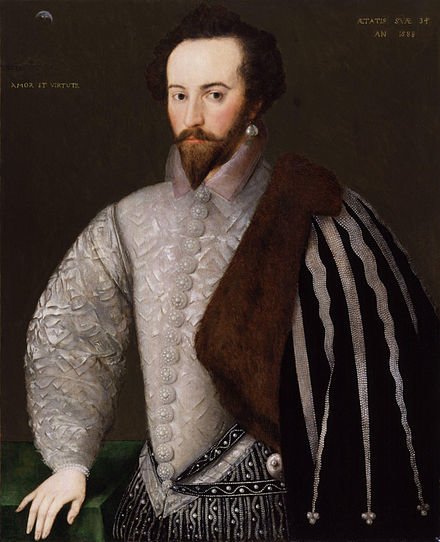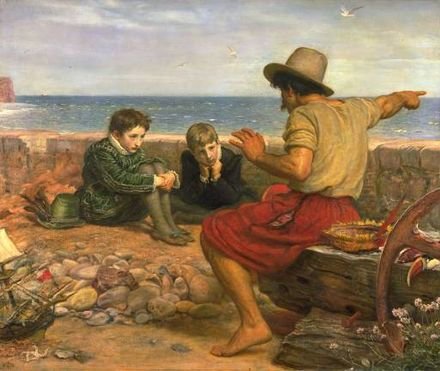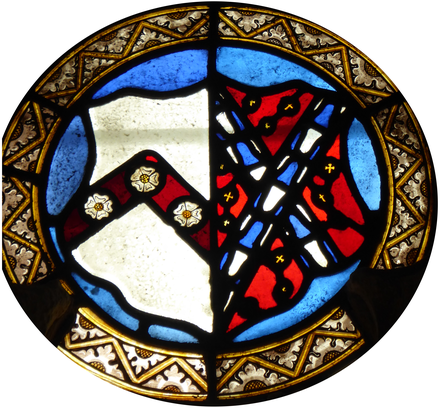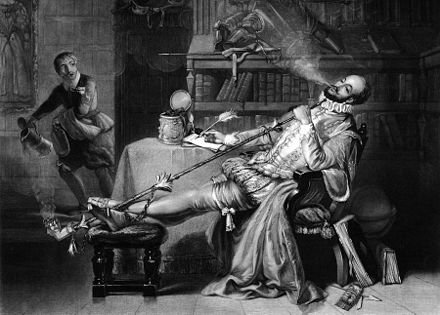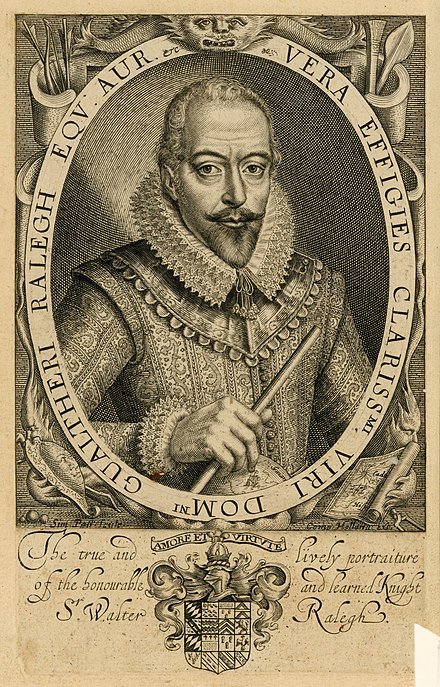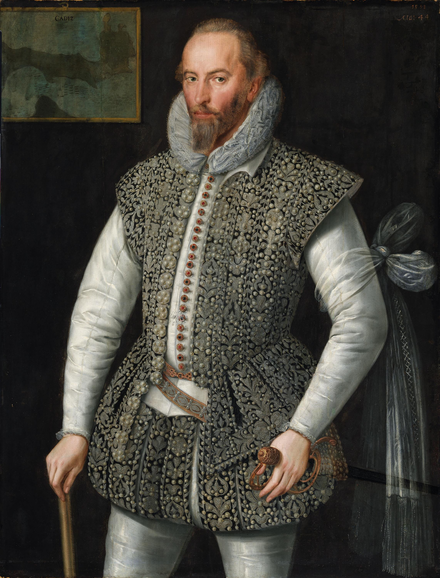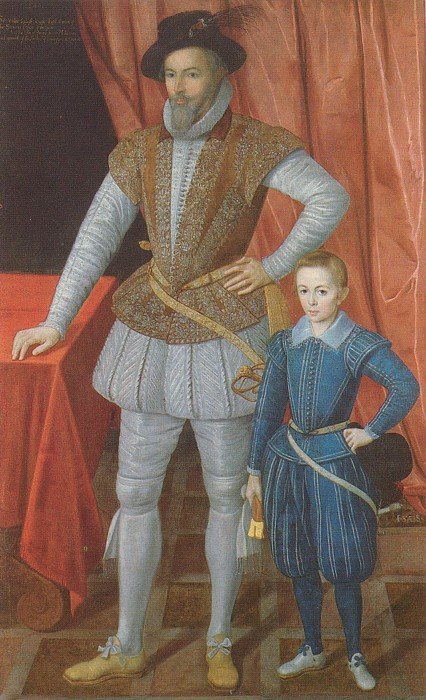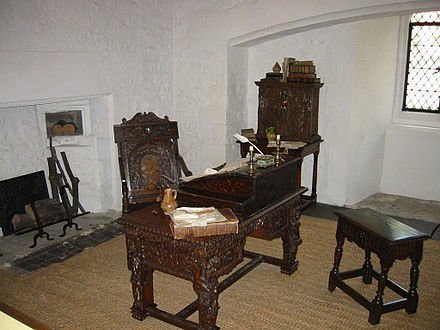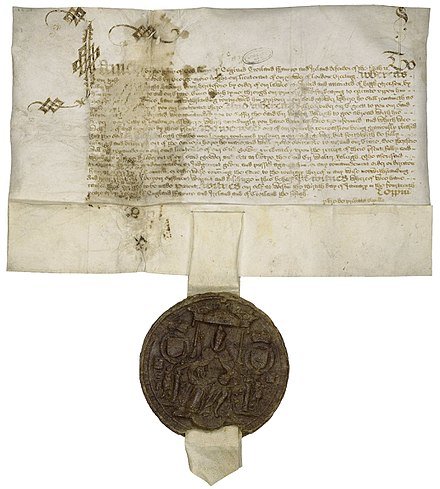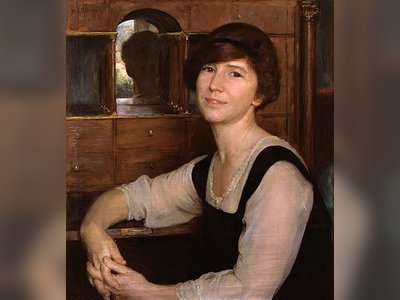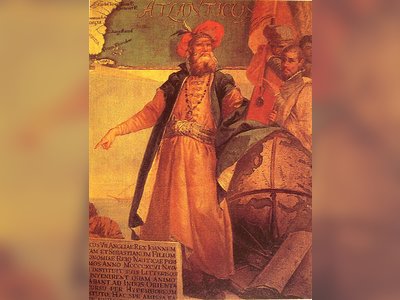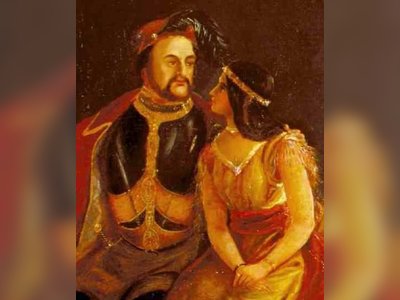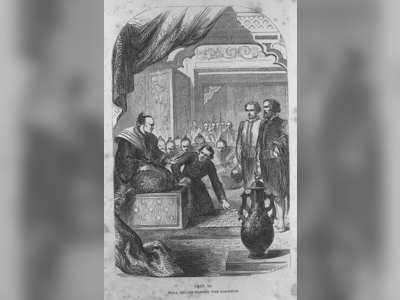British Heritage
Remember, Cherish, Learn.
beta
Walter Raleigh - Headman to Headless Man
Contribution to British Heritage.
Sir Walter Raleigh, an eminent figure of the Elizabethan era, left a lasting legacy in British history through his various accomplishments and contributions. His role in the English colonization of North America marked the beginning of a significant period of exploration and expansion for the British Empire. Raleigh played a crucial part in securing England against the formidable Spanish Armada, a feat that bolstered national pride and elevated the country's status on the world stage. His explorations and writings about the legendary "El Dorado" contributed to the fascination with the New World and the belief in untold riches waiting to be discovered.
As a statesman and politician, Raleigh rapidly rose in the favor of Queen Elizabeth I, who bestowed upon him political positions and honors, including knighthood. His efforts in Ireland to suppress rebellion and his accomplishments in maritime and military affairs earned him accolades and a reputation as a capable leader. Despite his fall from grace during the reign of King James I, who ultimately ordered his execution, Raleigh's contributions to British heritage have endured and continue to be remembered and celebrated to this day.
Walter Raleigh was born around 1552 (possibly 1554) into a Protestant family in Devon, England. His father, also named Walter Raleigh, and his mother, Catherine Champernowne, provided him with a relatively privileged upbringing. Little is known about his early life, but it is believed that in his late teens, he spent some time in France during the religious civil wars.
Raleigh's path to prominence began when he participated in the suppression of rebellion in Ireland and played a significant role in the siege of Smerwick. His successes in Ireland earned him political recognition, and he quickly gained the favor of Queen Elizabeth I. In 1585, he was knighted and granted a royal patent to explore and colonize the territory of Virginia in North America, setting the stage for future English settlements.
Raleigh's adventurous spirit led him to seek fame and fortune in the New World. In 1594, he heard tales of a mythical "City of Gold" in South America and embarked on a voyage to find it. Although he did not discover the legendary city, he published an exaggerated account of his experiences, contributing to the myth of "El Dorado" and fueling European curiosity about the Americas.
Despite Raleigh's early successes, his life took a tumultuous turn. He secretly married Elizabeth Throckmorton, one of Queen Elizabeth's ladies-in-waiting, without the Queen's permission, leading to his imprisonment in the Tower of London. Although eventually released, his fortunes dwindled after Queen Elizabeth's death, and he faced further difficulties during the reign of King James I, who suspected Raleigh of plotting against him. In 1618, Raleigh was arrested, tried, and sentenced to death for his alleged involvement in a conspiracy against the King. His execution took place at the Palace of Westminster, where he met his fate with courage and defiance.
Sir Walter Raleigh's contributions to British heritage are diverse and enduring. His efforts in exploring and colonizing North America paved the way for English expansion in the New World, shaping the course of history and creating lasting ties between England and its colonies. Raleigh's writings, particularly his accounts of his voyages and his work "The Historie of the World," showcased his intellect and literary prowess, leaving a cultural imprint on British literature.
Though his life ended tragically with his execution, Raleigh's legacy lived on in various ways. Several geographic locations in North America and other parts of the world bear his name, commemorating his role in exploration and colonization. The city of Raleigh, North Carolina, and Raleigh County, West Virginia, stand as enduring tributes to his influence.
In popular culture, Sir Walter Raleigh remains a figure of fascination and inspiration. His adventurous spirit, intellect, and contributions to literature continue to captivate readers and historians alike. Despite his ultimate downfall, Raleigh's indelible mark on British heritage endures, reminding us of the complexities and achievements of one of England's most illustrious Elizabethan figures.
As a statesman and politician, Raleigh rapidly rose in the favor of Queen Elizabeth I, who bestowed upon him political positions and honors, including knighthood. His efforts in Ireland to suppress rebellion and his accomplishments in maritime and military affairs earned him accolades and a reputation as a capable leader. Despite his fall from grace during the reign of King James I, who ultimately ordered his execution, Raleigh's contributions to British heritage have endured and continue to be remembered and celebrated to this day.
Early Life and Background
Walter Raleigh was born around 1552 (possibly 1554) into a Protestant family in Devon, England. His father, also named Walter Raleigh, and his mother, Catherine Champernowne, provided him with a relatively privileged upbringing. Little is known about his early life, but it is believed that in his late teens, he spent some time in France during the religious civil wars.
Rise to Prominence
Raleigh's path to prominence began when he participated in the suppression of rebellion in Ireland and played a significant role in the siege of Smerwick. His successes in Ireland earned him political recognition, and he quickly gained the favor of Queen Elizabeth I. In 1585, he was knighted and granted a royal patent to explore and colonize the territory of Virginia in North America, setting the stage for future English settlements.
Explorations and Legend of El Dorado
Raleigh's adventurous spirit led him to seek fame and fortune in the New World. In 1594, he heard tales of a mythical "City of Gold" in South America and embarked on a voyage to find it. Although he did not discover the legendary city, he published an exaggerated account of his experiences, contributing to the myth of "El Dorado" and fueling European curiosity about the Americas.
Troubled Times and Execution
Despite Raleigh's early successes, his life took a tumultuous turn. He secretly married Elizabeth Throckmorton, one of Queen Elizabeth's ladies-in-waiting, without the Queen's permission, leading to his imprisonment in the Tower of London. Although eventually released, his fortunes dwindled after Queen Elizabeth's death, and he faced further difficulties during the reign of King James I, who suspected Raleigh of plotting against him. In 1618, Raleigh was arrested, tried, and sentenced to death for his alleged involvement in a conspiracy against the King. His execution took place at the Palace of Westminster, where he met his fate with courage and defiance.
Legacy and Impact
Sir Walter Raleigh's contributions to British heritage are diverse and enduring. His efforts in exploring and colonizing North America paved the way for English expansion in the New World, shaping the course of history and creating lasting ties between England and its colonies. Raleigh's writings, particularly his accounts of his voyages and his work "The Historie of the World," showcased his intellect and literary prowess, leaving a cultural imprint on British literature.
Though his life ended tragically with his execution, Raleigh's legacy lived on in various ways. Several geographic locations in North America and other parts of the world bear his name, commemorating his role in exploration and colonization. The city of Raleigh, North Carolina, and Raleigh County, West Virginia, stand as enduring tributes to his influence.
In popular culture, Sir Walter Raleigh remains a figure of fascination and inspiration. His adventurous spirit, intellect, and contributions to literature continue to captivate readers and historians alike. Despite his ultimate downfall, Raleigh's indelible mark on British heritage endures, reminding us of the complexities and achievements of one of England's most illustrious Elizabethan figures.
- Walter Raleighen.wikipedia.org
